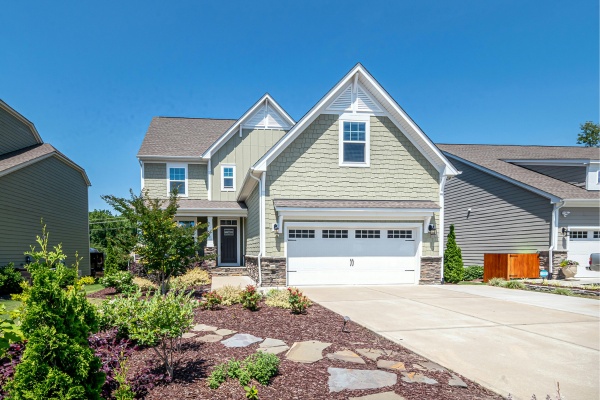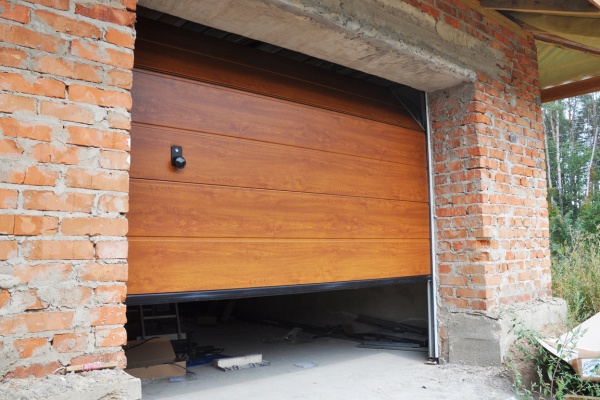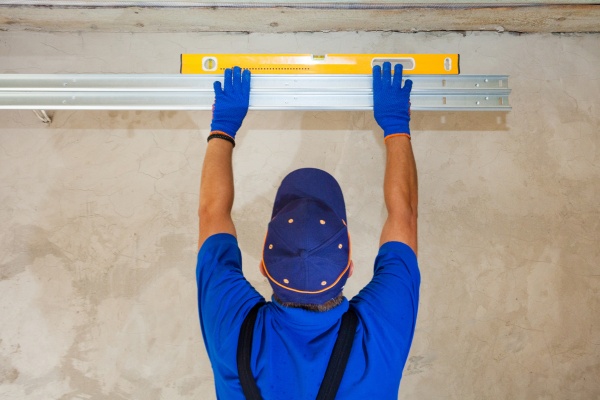Thinking about upgrading your garage door? A new garage door can boost your home's curb appeal, improve security, and even increase its value. But before you start shopping, it's crucial to understand the costs involved. This comprehensive guide breaks down everything you need to know about garage door replacement costs in 2025, helping you budget effectively for your project.
What Factors Influence Garage Door Replacement Costs?
Several factors significantly impact the overall cost of replacing your garage door. These include the material chosen, the size and style of the door, the complexity of the installation, and any additional features you desire. Labor costs, which vary depending on your location and the contractor's experience, also play a crucial role. Permitting fees, if required in your area, add another layer to the total expense. Finally, the disposal of your old garage door contributes to the overall project cost. Understanding these elements ensures accurate budgeting and avoids unexpected expenses. You'll also need to consider the cost of a new garage door opener if yours is outdated or malfunctioning.

Types of Garage Doors
The type of garage door material you select dramatically affects the price. Let's explore the common options:
- Steel Garage Doors: These are generally the most affordable, offering durability and low maintenance. Wood Garage Doors: Known for their aesthetic appeal, wood doors are more expensive but provide a custom look. Aluminum Garage Doors: Lightweight and resistant to rust, aluminum doors are a mid-range option. Fiberglass Garage Doors: Highly durable and resistant to dents and scratches, fiberglass doors represent a premium choice. Vinyl Garage Doors: Offering low maintenance and a variety of colors, vinyl garage doors are a cost-effective option.
Additional Costs to Consider
Beyond the base price of the garage door itself, several other costs deserve attention:

- Disposal of Old Garage Door: Proper disposal adds to the total cost. Custom Garage Doors: Unique designs and sizes significantly increase the price. Insulation Options: Adding insulation enhances energy efficiency but increases the initial cost.
What is the Average Cost of a Garage Door Replacement?
The average cost of a garage door replacement in 2025 ranges from $800 to $3,000 or more, depending on several variables. A simple, single-car steel garage door installation might fall on the lower end, while a custom wood door with advanced features and professional installation will likely reach the higher end of this range. Remember, this is just an average; your specific costs will depend on the factors discussed above. Consider the size of your garage door, as larger doors will typically increase material and labor costs.
Pricing Breakdown by Material
Here's a general cost comparison (prices are estimates and may vary by region):
- Steel: $600 - $1,500 Wood: $1,500 - $4,000+ Aluminum: $800 - $2,000 Fiberglass: $2,000 - $5,000+ Vinyl: $700 - $1,800
Typical Labor Fees
Labor costs typically constitute a substantial portion of the overall expense, ranging from $100 to $500 or more, depending on the complexity of the installation and your geographic location. Factor https://telegra.ph/Conquer-Garage-Door-Troubles-Your-2025-Guide-to-Repair-amp-Maintenance-04-29 in additional charges for disposal of the old garage door and any unexpected repairs.
How Do I Choose the Right Garage Door for My Home?
Selecting the right garage door involves careful consideration of style, size, material, and insulation needs. Assess your home's architectural style to ensure compatibility. Consider the size of your garage opening for proper fit. Think about your budget, as material choices significantly impact the final cost. Also, factor in your needs for insulation, as this affects energy efficiency and cost savings long-term. Choosing a reputable dealer ensures quality materials and professional installation.
Style Options
The style of your garage door significantly impacts its visual appeal:
- Carriage House Doors: These doors mimic the look of traditional carriage house doors, adding a touch of elegance. Overhead Garage Doors: This classic style is practical and widely available in various materials and styles.
Insulation Needs
Insulated garage doors offer superior energy efficiency, reducing heating and cooling costs. Non-insulated options are more affordable but less energy-efficient. Consider your climate and energy bills when making this decision.
Can I Save Money by Installing a Garage Door Myself?
While DIY garage door installation might seem tempting to save money, it's crucial to weigh the pros and cons carefully. DIY installation can save you on labor costs, but if something goes wrong, you'll likely have to hire a professional to fix it. This could end up costing more in the long run. Incorrect installation could also void warranties on your garage door and opener. Remember, safety is paramount.
Pros and Cons of DIY Installation
Pros: Potential cost savings on labor.
Cons: Risk of injury, potential for incorrect installation, possible warranty voidance.
Tools Required for Installation
A successful DIY installation requires specific tools and expertise. Lacking either can lead to frustration and potentially costly mistakes.
How Long Does a Garage Door Last?
The lifespan of a garage door varies considerably, depending on the quality of materials, environmental factors, and regular maintenance. High-quality doors with proper care can last 15 to 30 years or longer. Regular lubrication, spring checks, and routine maintenance significantly extend a garage door's lifespan. Ensure you're aware of the warranty period offered by the manufacturer.
Factors Affecting Durability
Material quality, exposure to harsh weather conditions, and the frequency of use all contribute to a garage door's longevity. Regular inspections and timely repairs are crucial to prevent premature failure.
What Are the Common Issues with Garage Doors?
Over time, garage doors may experience various problems, from broken springs and rollers to malfunctioning openers. Recognizing the signs of needing a repair versus a full replacement is crucial. Regular maintenance significantly reduces the risk of costly repairs and premature replacements.
Signs You Need a Replacement vs. Repair
Minor issues often involve simple repairs; however, significant damage, such as severe rust or structural damage, often warrants a full replacement. Consult a professional for accurate assessment.
Maintenance Tips for Longevity
Regular lubrication, inspections of springs and rollers, and checking the opener's operation are vital to extend the life of your garage door. Addressing small issues promptly prevents them from becoming major problems.
Frequently Asked Questions
What is the cost range for a garage door replacement? The cost typically ranges from $800 to $3,000 or more, depending on factors like materials, labor, and additional features.
How can I finance my garage door replacement? Financing options include home equity loans, personal loans, or financing offered by contractors.
Are there any tax rebates for energy-efficient garage doors? Some local and state governments offer rebates; check with your local energy provider.
What maintenance do garage doors require? Regular lubrication, spring and roller inspections, and opener checks are essential.
How often should I replace my garage door? Generally, replacement is needed every 15 to 30 years, depending on factors like usage and material.

Replacing your garage door is a significant investment, but understanding the costs involved and making informed choices can make the process smoother. By carefully considering your needs, budget, and the factors outlined in this guide, you can select the perfect garage door to enhance your home's appearance and value for years to come. Start planning your upgrade today!